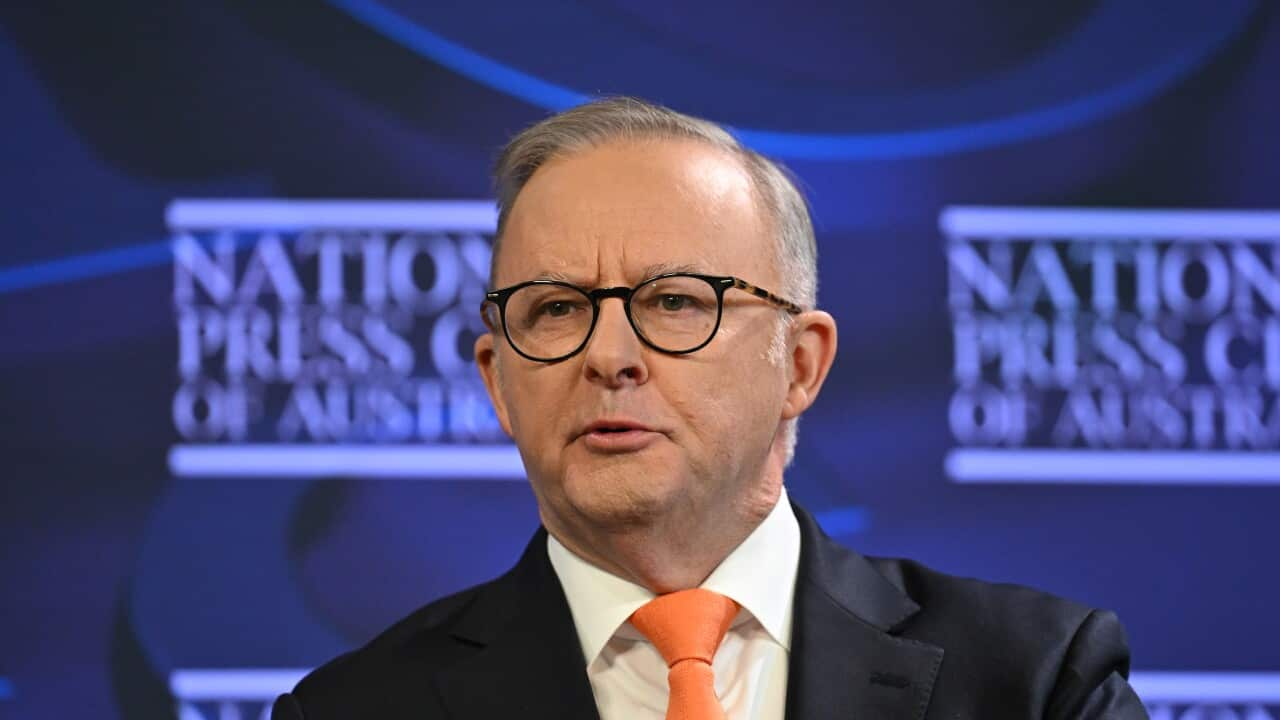Prime Minister Anthony Albanese has announced that Treasurer Jim Chalmers will convene a 'roundtable' at Parliament House later this year to help shape the government's agenda on economic growth and productivity.
In his first National Press Club address since being re-elected, Albanese said leaders from the business community, union movement and civil society would be brought together in August to discuss "a targeted set of issues" to help build "the broadest possible base of support for further economic reform".
The aim of such reform would be "to drive growth, boost productivity, strengthen the budget and secure the resilience of our economy in a time of global uncertainty," Albanese said.
"What we want is a focused dialogue and constructive debate that leads to concrete and tangible actions."
Albanese said his government's plan for economic growth and productivity was about Australians "earning more and keeping more of what they earn", and that it wanted to build an economy where "growth, wages and productivity all rise together".
How is Australia faring on productivity?
Labour productivity is a measure of how much output is produced per worker or per hour worked. Productivity growth occurs when workers are able to get more out of the same or shorter amount of time — such as though access to technologies that make their processes more efficient.
Productivity is a long-term driver of a stronger economy and improved living standards overall.
In Australia, however, productivity growth has been declining. In the year to March, productivity fell 1 per cent, according to the Australian Bureau of Statistics.
Economists have expressed concern about Australia's lagging productivity rate, and Chalmers has identified improving it as one of his key priorities, having called it the most significant structural problem facing the economy.
Has the government held a meeting like this before?
Yes. In September 2022, during Albanese's first term as prime minister, the government similarly held a two-day Jobs and Skills Summit that brought together business and union leaders and other key stakeholders.
Albanese lauded the outcomes of the summit during his Press Club address, saying that without it, Australia would have a greater skills shortages, no free TAFE program, and no financial incentives for workers in the construction and energy fields.
"We wouldn't have those issues being addressed and a more rational discussion as well about the role that migration plays in that," Albanese said.
However, Albanese said that the roundtable would be a "more streamlined dialogue" than the summit.

Press Club president Tom Connell said to Albanese that in the wake of the Jobs and Skills Summit, some business leaders felt outcomes were slanted towards the priorities of unions.
"We're a Labor government. We support unions existing," Albanese replied.
"But we will always respect both the role of business and the role of unions. And one of the things that I say is that there are common interests ... you don't get union members unless you've got successful employers. It's the private sector that drives an economy.
"What the public sector should do is facilitate private sector activity and private sector investment, and that's what my government is focused on."
Later on, Albanese was asked whether it would be a "waste of breath" for business groups to raise industrial relations concerns at the roundtable, specifically in the wake of the government's plans to enshrine penalty rates in law.
Albanese said he supports penalty rates and real wages increasing, and said the government would not "abandon" workers "getting a fair crack for their contribution".
"What we do support is companies being successful. We support proper negotiation between workers and businesses to achieve productivity improvements. And we support living standards not going backwards."
What's next?
Chalmers is set to give his own National Press Club address next week. Albanese said the Treasurer would give more details about the roundtable during that speech.
— With additional reporting by the Australian Associated Press
For the latest from SBS News, download our app and subscribe to our newsletter.

